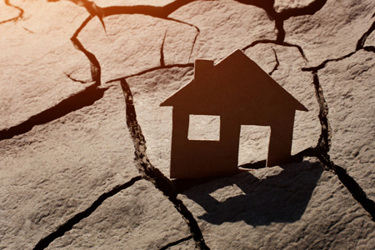The Impact Of America's Water Crisis On The Housing Industry
Insight from Riggs Eckelberry, CEO And Founder Of OriginClear

All across America, water scarcity is changing the way we live, and the housing industry is no exception. According to PNAS.org, an estimated 471,000 households or 1.1 million individuals lack a piped water connection. With 73% of homes located in urban areas, the overwhelming pressure of underfunded water infrastructure is causing a great migration from big cities to suburbs.
Riggs Eckelberry of OriginClear, a leader in the self-reliant water revolution, explains the good and the bad of this change, providing civilians with new opportunities to treat their own water in remote locations contrary to developments in the real estate industry left to suffer the effects of the American water crisis. “Overwhelmed cities are already struggling and the increasing demand for new construction can create more of an issue,” he says. With more individuals leaning toward rural homes, self and reliable water access is an issue Eckelberry constantly faces through efforts to find water treatment solutions. “We’re seeing further out housing developments and mobile home parks that are too far from the municipality, so they’re having to clean their own water. Not only can this create problems for building new locations, but it can make it difficult for current locations to function properly and safely.”
On top of the underfunded infrastructure, aging water systems are failing to maintain proper water standards, leaving Americans to confront their fundamental right to water and where they should reside. “Poor water management and droughts are increasing water scarcity, thereby increasing water rates as much as 4x faster than core inflation,” shares Eckelberry. He also points to other cases that have affected the livelihood of citizens in urban areas — including Flint, Michigan and Compton, California — where inadequate treatment meets housing crises. For the housing industry, this shortage of freshwater resources continues to drastically affect how and where homes are built alongside the decisions many must make when buying one.
As water becomes more limited, our infrastructure falls further behind, and the population continues to grow, water-scarce regions are also impacting the level of development in cities and forcing the real-estate industry to respond with urgent solutions. Leading a company that treats and conserves our planet’s water, Eckelberry shares one way to mitigate the crisis for water and real-estate companies alike. “We can focus on implementing ways to reuse the water that we’re receiving. This is what we’re aiming to do with the business and agricultural side of things, which makes up for 87% of all water usage.” With the average U.S. civilian using about 3,000 gallons of water per month, every drop counts.
Together with Water On Demand™, a pay-per-gallon water recycling program, Eckelberry looks toward the benefits of water projects that can help businesses, end users, and housing developments through this ongoing crisis. “The biggest issue in the water industry is a lack of funding. We created Water On Demand as a way to enable investors to help finance these much-needed water systems so that businesses and end users can simply pay by the gallon for the water they use, rather than having to pay upfront for an expensive system. That’s what we’re doing now, and it’s going great.”
To learn more about what’s happening with water in the world amid the American water crisis, join Eckelberry at OriginClear’s CEO Weekly Zoom Briefing every Thursday at 5pm Pacific, 8pm Eastern. Sign up at www.oc.gold/ceo.
